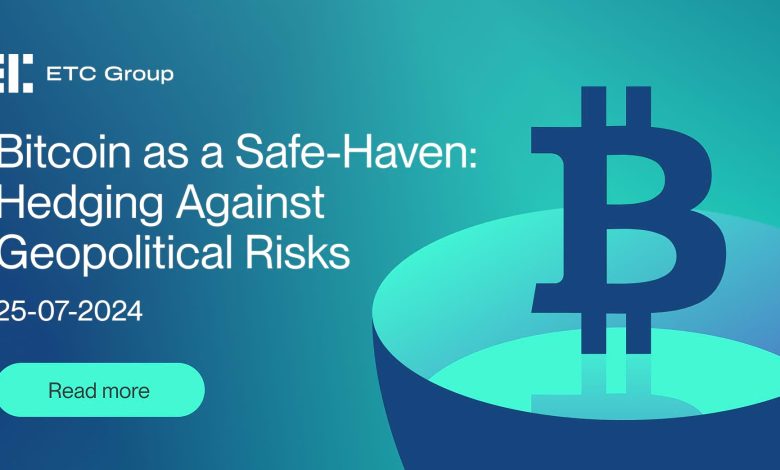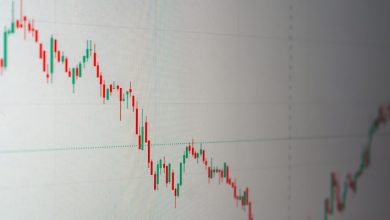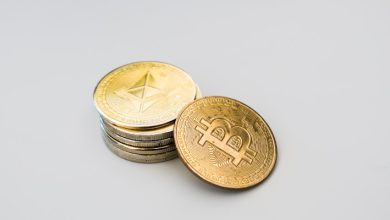The Impact of Geopolitical Events on Crypto Prices

- The relationship between geopolitical events and cryptocurrency prices
- How political tensions can influence the value of digital assets
- The role of global conflicts in shaping the crypto market
- Analyzing the correlation between world events and cryptocurrency fluctuations
- Impact of government regulations on the volatility of digital currencies
- Geopolitical risks and their effects on the crypto industry
The relationship between geopolitical events and cryptocurrency prices
Geopolitical events have a significant impact on the prices of cryptocurrencies. The relationship between these events and crypto prices is complex and multifaceted. When there is political instability or uncertainty in a region, investors often turn to cryptocurrencies as a safe haven asset. This increased demand can drive up the prices of cryptocurrencies, as more people are looking to invest in them as a way to protect their wealth.
On the other hand, geopolitical events can also have a negative impact on cryptocurrency prices. For example, if a government announces strict regulations or bans on cryptocurrencies, this can lead to a decrease in demand and a subsequent drop in prices. Additionally, geopolitical tensions between countries can lead to market volatility, which can also affect cryptocurrency prices.
Overall, it is clear that geopolitical events play a crucial role in shaping the prices of cryptocurrencies. Investors need to stay informed about global events and how they may impact the crypto market in order to make informed decisions about buying or selling digital assets.
How political tensions can influence the value of digital assets
Political tensions have a significant impact on the value of digital assets such as cryptocurrencies. When there is instability or conflict between countries or political entities, investors often turn to digital assets as a safe haven to protect their wealth. This increased demand can drive up the prices of cryptocurrencies, making them more valuable in times of geopolitical uncertainty.
On the other hand, political tensions can also have a negative effect on the value of digital assets. If a government decides to crack down on cryptocurrencies or impose strict regulations, it can lead to a decrease in demand and a drop in prices. Additionally, political instability can create a lack of confidence in the market, causing investors to sell off their digital assets in favor of more stable investments.
Overall, it is essential for investors to stay informed about geopolitical events and how they can impact the value of digital assets. By understanding the relationship between politics and cryptocurrency prices, investors can make more informed decisions and mitigate risks in a volatile market.
The role of global conflicts in shaping the crypto market
Global conflicts play a significant role in influencing the cryptocurrency market. Geopolitical events such as wars, trade disputes, and political tensions can create uncertainty and volatility in the market. Investors often turn to cryptocurrencies as a safe haven asset during times of geopolitical instability, leading to an increase in demand and subsequently driving up prices.
When there is a conflict between major world powers, such as the US and China, it can have a ripple effect on the crypto market. Traders closely monitor these events and adjust their investment strategies accordingly. The fear of economic sanctions or disruptions in global trade can lead to a flight to safety, with many turning to cryptocurrencies as a hedge against traditional financial assets.
Moreover, geopolitical events can also impact the regulatory environment for cryptocurrencies. Governments may impose stricter regulations or bans on digital assets in response to geopolitical tensions. This can create uncertainty in the market and cause prices to fluctuate. Traders need to stay informed about these developments to make informed decisions and mitigate risks.
Analyzing the correlation between world events and cryptocurrency fluctuations
One of the key factors influencing the **fluctuations** in cryptocurrency prices is the correlation with **world events**. Geopolitical events such as political unrest, economic instability, and international conflicts can have a significant impact on the **value** of cryptocurrencies.
**Analyzing** the correlation between **world events** and **cryptocurrency fluctuations** can provide valuable insights into how external factors can affect the **market**. By examining historical data, researchers have found that certain **events** can lead to **increased** volatility in the **crypto** **market**.
For example, when there is a **major** **geopolitical** **crisis**, such as a trade war or a terrorist attack, investors may flock to **cryptocurrencies** as a **safe** **haven** asset, driving up their **prices**. On the other hand, **positive** **developments**, such as regulatory **clarity** or **adoption** by **major** **companies**, can also lead to **price** **increases**.
Overall, **understanding** the relationship between **world events** and **cryptocurrency prices** is crucial for **investors** and **traders** looking to make **informed** decisions in the **volatile** **crypto** **market**. By staying **up** to **date** on **global** **events** and their potential **impact** on **cryptocurrency**, **market** participants can better navigate the **ever**-changing **landscape** of **digital** **assets**.
Impact of government regulations on the volatility of digital currencies
Government regulations play a significant role in shaping the volatility of digital currencies. When governments impose restrictions or regulations on the use of cryptocurrencies, it can have a direct impact on their prices. This is because regulations can affect the overall market sentiment and investor confidence in digital assets.
For example, if a government announces a ban on the use of cryptocurrencies or imposes strict regulations on exchanges, it can lead to a sell-off as investors fear the consequences of non-compliance. On the other hand, if a government introduces favorable regulations that legitimize the use of digital currencies, it can boost investor confidence and drive up prices.
Moreover, government regulations can also impact the adoption of digital currencies on a global scale. Countries with strict regulations may deter businesses and individuals from using cryptocurrencies, leading to lower demand and ultimately lower prices. Conversely, countries with favorable regulations may attract more users and investors, driving up demand and prices.
Geopolitical risks and their effects on the crypto industry
Geopolitical risks play a significant role in influencing the crypto industry, impacting prices and market sentiment. These risks can stem from various sources such as political instability, regulatory changes, trade wars, and international conflicts. When geopolitical events unfold, they can create uncertainty and volatility in the crypto market, leading to fluctuations in prices and trading volumes.
One of the key effects of geopolitical risks on the crypto industry is increased investor caution and risk aversion. Investors may become more hesitant to enter the market or make large investments during times of heightened geopolitical tensions. This can result in decreased trading activity and liquidity, causing prices to become more volatile and unpredictable.
Furthermore, geopolitical events can also influence regulatory decisions and government policies regarding cryptocurrencies. For example, a government crackdown on crypto exchanges or mining operations in response to geopolitical pressures can have a significant impact on the market. This can lead to a decrease in adoption and usage of cryptocurrencies in certain regions, affecting overall market dynamics.
Overall, it is essential for participants in the crypto industry to closely monitor geopolitical developments and their potential impacts on the market. By staying informed and adapting to changing conditions, stakeholders can better navigate the challenges posed by geopolitical risks and position themselves for long-term success in the ever-evolving crypto landscape.



